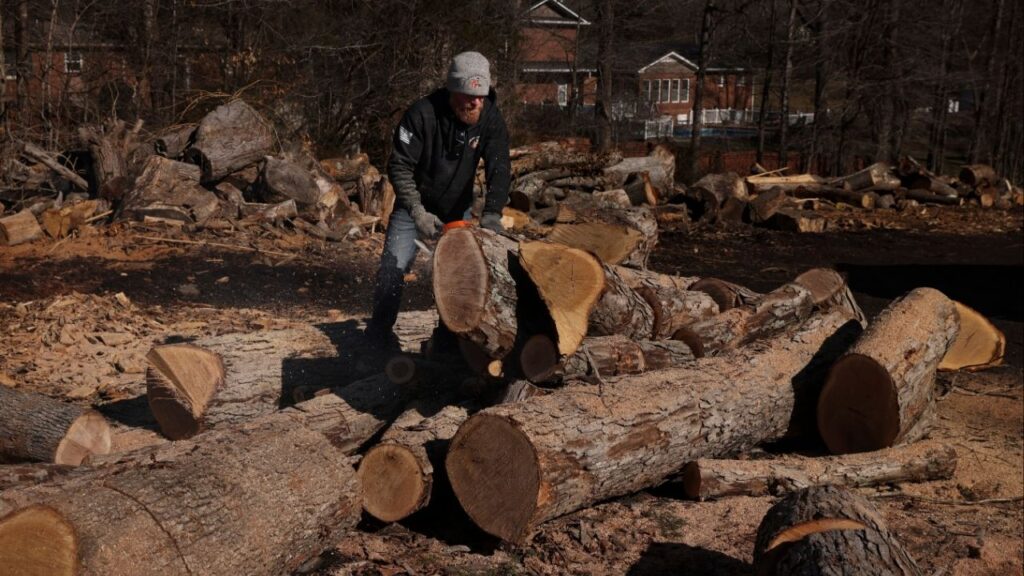A California bill aiming to make oil companies pay for climate change disaster damages failed amid concerns over gas prices. (AP File)

- The proposed law would have allowed victims and insurers to sue fossil fuel companies for climate disaster damages.
- Opponents argued the bill could increase gas prices, harm jobs, and face legal challenges proving liability.
- The bill's failure occurs as California's climate leadership faces challenges from federal policy rollbacks.
Share
SACRAMENTO — California lawmakers have blocked a bill to make oil and gas companies liable for damage to homes from natural disasters caused by climate change, warning it could raise gas prices.
The bill would have allowed victims of natural disasters, including fires, floods and hurricanes, to sue fossil fuel companies over harm to themselves or their property for damage totaling at least $10,000. Home insurers would also have been able to seek damages under the legislation. The proposal was announced weeks after the Los Angeles-area fires broke out in January, burning thousands of homes and killing at least 30 people.
Opposition Cites Gas Prices and Job Concerns
The Senate Judiciary Committee rejected the bill late Tuesday, with several Democrats abstaining, but left open the possibility for it to be reconsidered later this year. Opponents also said it would threaten jobs in the energy industry by dealing a blow to business, and that it would be difficult to prove a specific company’s responsibility for a particular natural disaster.
State Sen. Scott Wiener, a Democrat representing San Francisco who authored the bill, rejected the argument that it would lead to higher gas prices. He said it was about holding the fossil fuel industry accountable for the impacts of climate change. The bill would have eased the burden on disaster survivors and insurance companies to cover damage costs, he said.
“Today’s vote is a setback for the victims of the Los Angeles wildfires and for the cost of living in California,” Wiener said in a statement. “Victims of the Eaton and Palisades Fire — and of all climate disasters — deserve accountability for the decades of Big Oil lies that devastated their communities.”
When fossil fuels such as oil and gas are burned for energy, carbon dioxide and other emissions enter the Earth’s atmosphere, causing the planet to warm. Climate change has made natural disasters more frequent and intense.
State Sen. Anna Caballero, a Democrat representing part of the Central Valley, said ahead of the vote that lawmakers’ decision not to support the bill shouldn’t be viewed as a move to deprioritize environmental policy. And she said it wouldn’t help people who lost their homes to recent fires rebuild.
“If this was going to actually result in building homes in the fire zones faster, better and with more efficiency, I would probably support it,” she said. “But from my view, this is more about lawyers. This is about litigation.”
Broader Context of Climate Policy Battles
Wiener said it was important for California to remain a climate leader, invoking President Donald Trump’s efforts to roll back environmental policies.
Trump signed an executive order Tuesday to identify state rules he said could hinder “America’s energy dominance.” He called out California’s cap-and-trade program, as well as other climate policies in New York and Vermont.
The California bill’s failure to advance comes after lawmakers in recent years blocked a proposal that would have made oil companies liable for the health problems of people who live close to oil wells.
California, a U.S. trendsetter on climate policies, has approved policies over the years to limit emissions from cars, lawn mowers, trucks and trains. But some of those measures have faced threats from the Trump administration. The state Air Resources Board pulled back its requests for federal approval to enforce rules curbing pollution from diesel-powered big rigs and trains ahead of Trump’s return to office.
Other major California rules are at risk. Congressional Republicans introduced proposals last week to block state policies approved by President Joe Biden’s administration that would ban the sale of new gas-powered cars by 2035, cut tailpipe emissions from medium- and heavy-duty vehicles, and curb smog-forming nitrogen oxide pollution from trucks.
Austin is a corps member for The Associated Press/Report for America Statehouse News Initiative. Report for America is a nonprofit national service program that places journalists in local newsrooms to report on undercovered issues. Follow Austin on X: @sophieadanna



















